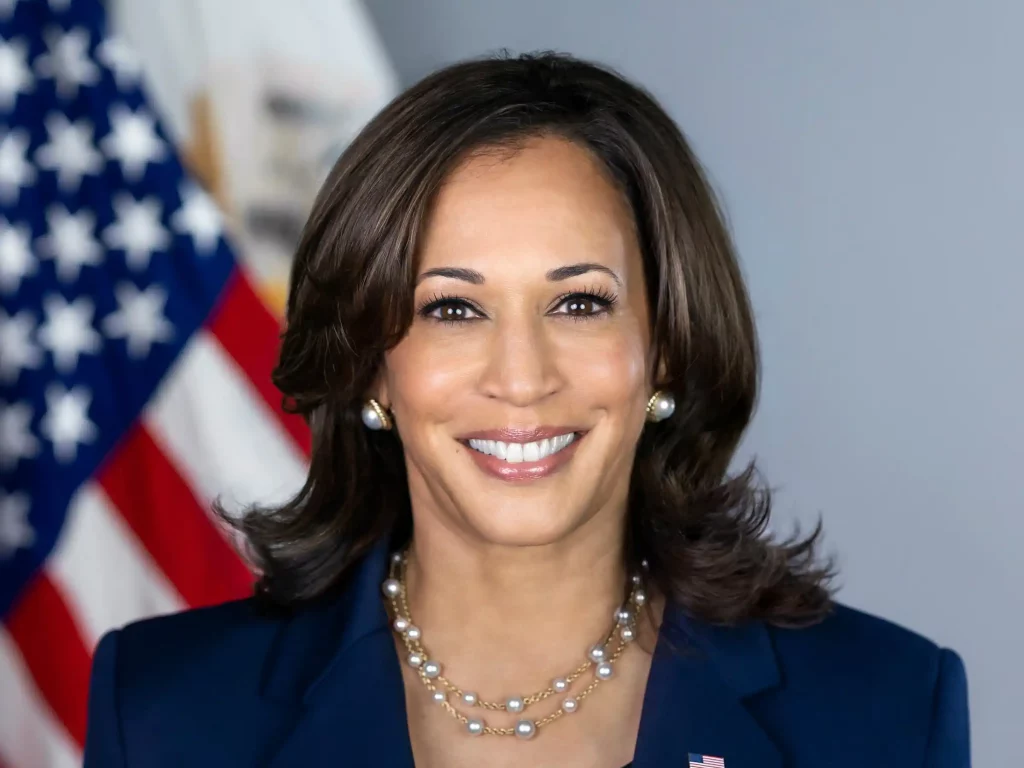Kamala Devi Harris, the 49th and current Vice President of the United States, has had a remarkable career in public service and law. Born on October 20, 1964, in Oakland, California, Harris made history as the first female, first Black, and first South Asian Vice President of the United States. Her journey to one of the most powerful offices in the world exemplifies her commitment to civil rights, justice, and equality.
Early Life and Education
Kamala Harris was born to immigrant parents—her mother, Shyamala Gopalan, an Indian-American cancer researcher, and her father, Donald Harris, a Jamaican-American economist. Her multicultural background has often been reflected in her approach to governance, which is inclusive and broad-minded. Growing up in a diverse environment, Harris was aware of social justice issues from a young age, and she credits her mother with instilling in her a commitment to fighting for change.
Harris attended Howard University, one of the most prestigious historically Black colleges in the United States. At Howard, she studied political science and economics, laying the groundwork for her future in law and politics. After Howard, Harris earned her law degree from the University of California, Hastings College of the Law.
Career in Law
Kamala Harris began her career as a deputy district attorney in Alameda County, California, in 1990, where she focused on prosecuting cases of gang violence, drug trafficking, and sexual abuse. Her work in Alameda demonstrated her commitment to justice and led to her appointment as District Attorney of San Francisco in 2004. As DA, Harris became known for her “Smart on Crime” approach, which balanced tough-on-crime policies with initiatives to reduce recidivism by helping offenders re-enter society.
Her innovative approach to law enforcement earned her national attention, and in 2010, Harris was elected Attorney General of California, the first woman and first person of color to hold the office. During her time as Attorney General, she implemented groundbreaking policies, including the Open Justice initiative, which made criminal justice data accessible to the public, increasing transparency and accountability in law enforcement. Harris also championed policies to protect consumers, combat climate change, and improve conditions for vulnerable populations.
U.S. Senate Career
In 2016, Kamala Harris was elected to the U.S. Senate, representing California. As a senator, she served on key committees such as the Homeland Security and Governmental Affairs Committee, the Select Committee on Intelligence, and the Judiciary Committee. Her background in law and her dedication to justice were evident in her work on the Judiciary Committee, where she was known for her sharp questioning and focus on civil rights and equality.
Harris quickly gained national recognition during high-profile hearings, notably those involving Supreme Court nominees. She frequently advocated for immigrants, health care reform, and police reform. Harris’s work on criminal justice issues, especially in the wake of national conversations on police reform, was informed by her experience as a prosecutor, and she became a prominent voice in discussions on racial equality and law enforcement reform.
Vice Presidency
Kamala Harris was selected by then-presidential candidate Joe Biden as his running mate in the 2020 U.S. Presidential Election. The Biden-Harris ticket won the election, and Harris was sworn in as Vice President on January 20, 2021. Her election as Vice President was historic for multiple reasons—she became the first female Vice President, the highest-ranking female official in U.S. history, and the first Black and South Asian Vice President.
As Vice President, Harris has focused on several key issues, including immigration reform, voting rights, and women’s rights. She has represented the administration in diplomatic efforts abroad, particularly in addressing the root causes of migration from Central America. Harris’s role as Vice President has included presiding over the Senate, where her vote has been crucial in passing key pieces of legislation given the 50-50 split between Democrats and Republicans.
Key Policies and Initiatives
Kamala Harris’s influence can be seen in several of the administration’s priorities:
- Voting Rights: Harris has been a vocal advocate for protecting voting rights in response to restrictive voting laws passed in various states. She has highlighted the importance of ensuring that every American has an equal opportunity to participate in the democratic process.
- Women’s Rights and Health Care: Harris has consistently supported policies aimed at expanding access to health care and protecting women’s reproductive rights. Her efforts have included advocating for federal funding to support maternal health, especially in marginalized communities.
- Climate Change and Environmental Justice: Recognizing the disproportionate impact of environmental issues on low-income and minority communities, Harris has supported initiatives focused on climate resilience and reducing greenhouse gas emissions. Her approach often combines environmental policy with social justice concerns.
- Immigration Reform: As someone from an immigrant family, Harris has been a strong proponent of comprehensive immigration reform. She has worked on addressing the root causes of migration from countries in the Northern Triangle (Guatemala, Honduras, and El Salvador), advocating for investments in these countries to reduce migration pressures.
Legacy and Impact
Kamala Harris’s career and her role as Vice President have had a profound impact on American politics. She has broken multiple barriers, inspiring young women and people of color to pursue careers in public service. Her commitment to justice, equality, and systemic reform has made her a central figure in U.S. politics, and her influence will likely continue to grow.
Conclusion
Kamala Harris’s journey from a prosecutor to the Vice President of the United States is a testament to her resilience and commitment to public service. As the first woman, first Black, and first South Asian Vice President, she continues to pave the way for future generations. Her story underscores the importance of representation and the power of persistence in shaping a more inclusive society.



